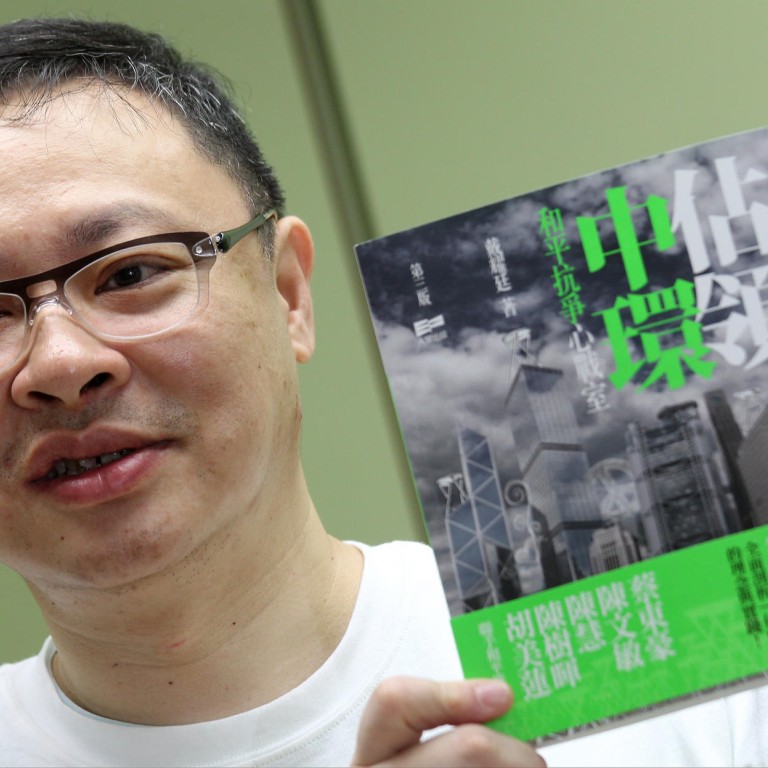
Here today but gone tomorrow
It does not matter if 66,000 or 430,000 people turned up for the July 1 rally on Monday. It has prompted the city's embattled leader Leung Chun-ying to promise that he would "listen carefully" to the various demands of the protesters. To do this, he could turn to microblogging, but apparently the Chief Executive has not made up his mind. On Tuesday, Leung launched a Sina Weibo account which quickly attracted more than 68,000 followers. He had not posted any comments and he was not following any person. The account, on China's largest microblogging platform, features a profile picture of Leung and a yellow "V" next to his name, indicating it has been verified by Sina. The account was shut down on Wednesday. It is up to Leung's advisers to decide if microblogging is a good idea to rescue his flagging popularity. But Leung might only see it as a tool to be used only during election campaigns. In his race for the top job more than a year ago, he created an account on Tencent Weibo. That account now appears to be abandoned. His last post was on March 25, 2012, the day he was declared the winner, read: "I believe with 'unity', Hong Kong will succeed." Joshua But and Ernest Kao
It is hard to accept defeat in a cyber war despite the knowledge that it is a losing battle when one faces the might of foreign intelligent agencies such as those exposed by US whistleblower Edward Snowden. Ann Chiang Lai-wan, an outspoken Beijing-loyalist lawmaker and the daughter of renowned industrialist Chiang Chen, was frank. "The government of the United States is spying everywhere and it might be hard to prevent," she said after a Legco question was directed to the government yesterday. "But at the same time we are using anti-virus software which was designed by US developers. Should we deploy more resources to design our own anti-virus software?" Commerce chief Greg So Kam-leung, who took the question, was unsure whether the origin of the software would make a real difference in protecting our computers. "Certainly local companies could deploy more efforts in research and development of internet security," he said. Joshua But
University of Hong Kong law professor Benny Tai Yiu-ting might have proven his worth as a rising political star in the July 1 rally in terms of his ability to sell books. Speaking on Commercial Radio yesterday morning, Tai said that all 1,500 copies of his new book were sold on Monday. At first he was worried how he could cart the books away if they were not sold, but he need not have fretted. "They were all gone [by the evening]," he said. It was beyond his expectations. The 1,500 exceeded the tally of maverick lawmaker Wong Yuk-man, who said he managed to sell only 900. Wong said he was planning to sell at least 1,000 copies, but the heavy rain on Monday afternoon damaged at least 100. He said 3,000 more copies of his book would be available at a coming book fair. Tony Cheung
The Occupy Central movement emerged as the most successful fundraiser during Monday's march, but while many might expect the most generous donor to be some pro-democracy veteran, organiser Dr Chan Kin-man thinks it could be a young student who donated more than HK$1,000. "When we were still setting up our street booth, a young man came along and took out almost all his money from his wallet and put it [into our donation box,]" Chan recalled. "I was worried whether it was an impulsive decision, and what is he going to do with his [remaining] pocket money? So our movement wasn't only supported by the middle class."
He said he was also touched by the generosity of an old man, even though he didn't donate a lot, while Benny Tai Yiu-ting, another organiser, was moved by the action of a middle-aged man, who didn't donate anything. "He had tears in his eyes, didn't say a word but just shook my hands," Tai said. "It was touching … [because] I could see hope in people's eyes." Tony Cheung


